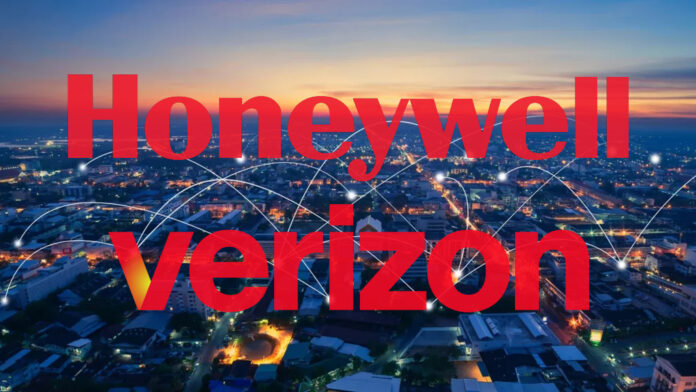Energy automation giant Honeywell has picked Verizon Business to organise 5G connectivity for its smart electric meters, and to help utility customers manage and modernise their grid operations. Both utilities and end users will be able to remotely access essential data to manage energy resources and resources, respectively – as per the standard business case for smart meters. Honeywell put the move, to adopt 5G, in the context of its broader drive to utilise well-connected hybrid cloud infrastructure in service of new artificial intelligence (AI) initiatives and services.
Verizon Business emphasised the high reliability and high security of cellular-based 5G comms for energy customers, as for industries generally – as well as high performance for sundry home and grid-level IoT sensing and AI sense-making, and higher flexibility to upgrade software remotely to reduce maintenance truck-rolls and provide assurance about the longevity of meters and other IoT devices. “With remote connectivity, customers can also anticipate fewer service interruptions and more reliable utilities,” it said.
Meter data can be managed via Verizon’s public 5G networks in utility management platforms (such as Honeywell Forge Performance+ for Utilities) for operational visibility, grid insights, and demand forecasts, and also in broader fleet management applications (such as Verizon ThingSpace) to gauge the health and performance of IoT devices.
Amol Motivala, president of Honeywell’s smart energy business, said: “By leveraging the power of AI, cloud, and 5G, we are driving the shift to autonomy for utilities and fundamentally changing the way energy distribution is managed by offering real time connectivity. [With] Verizon… we are reimagining the utility ecosystem with cellular connected smart meters that provide the needed insights to help improve grid performance and customer satisfaction.”
TJ Fox, senior vice president of industrial IoT and automotive at Verizon Business, said: “Secure, reliable connectivity… makes it easier to monitor the usage of resources and performance of equipment. We can reduce waste, unburden our grids, and take time and cost out of the utility management process… [Connectivity is] going to be critical for managing evolving demands for energy and minimizing outages or unforeseen maintenance events.”
In a supplied quote, John Marcus, senior principal analyst at GlobalData, said: “There is a clear trend toward using cellular-connected intelligence to monitor the grid for operational efficiency, health, resiliency, usage, and performance. This is important as charging infrastructure and energy-management innovations… are poised for rapid growth. Cellular… is one of the most effective ways to enable the intelligence that can help unburden the grid… and manage energy resources.”

